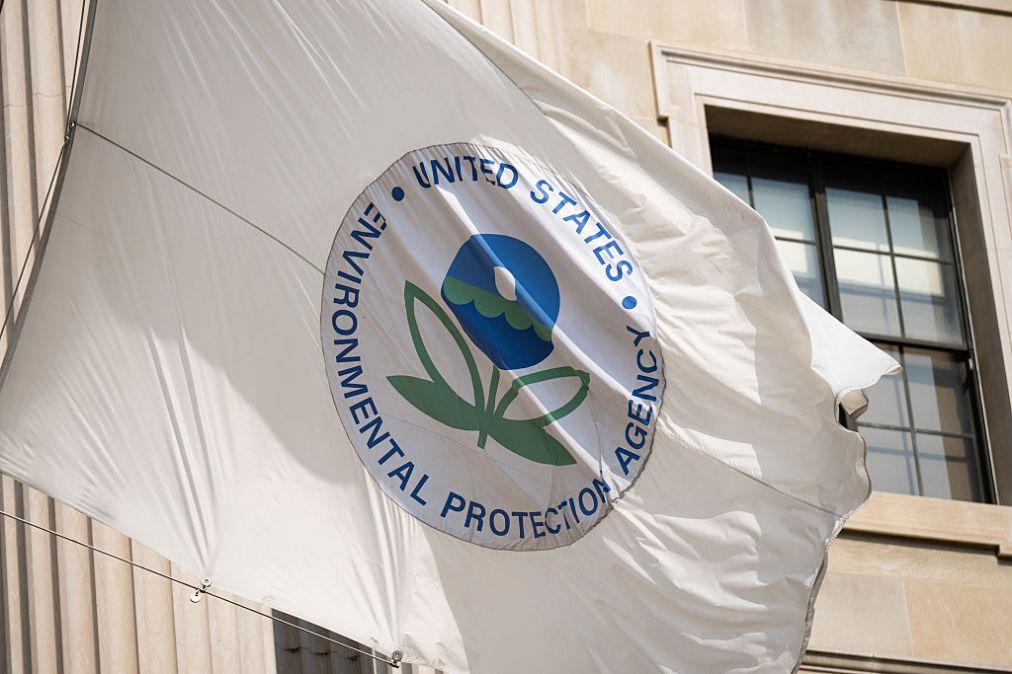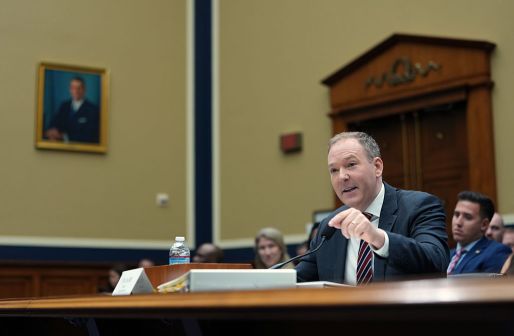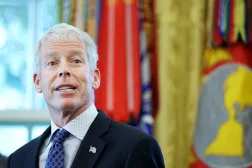EPA nominee says chemical reviews won’t be compromised for AI data centers

The Environmental Protection Agency’s pledge to “get out of the way” on chemical reviews to accelerate the buildout of artificial intelligence data centers doesn’t mean those reviews would be any less “robust,” a top EPA nominee told lawmakers Wednesday.
Appearing before the Senate Environment & Public Works Committee, Douglas Troutman — President Donald Trump’s pick for assistant administrator for toxic substances — was pressed by Sen. Ed Markey, D-Mass., about comments made by EPA Administrator Lee Zeldin last month following a White House roundtable with AI and data center leaders.
In a Sept. 18 press release, Zeldin announced that the EPA would begin prioritizing the review of new chemicals — under the Toxic Substances Control Act (TSCA) — that would be used in data center projects.
“We inherited a massive backlog of new chemical reviews from the Biden Administration which is getting in the way of projects as it pertains to data center and artificial intelligence projects,” Zeldin said in a statement. “The Trump EPA wants to get out of the way and help speed up progress on these critical developments, as opposed to gumming up the works. We are taking every step possible to make America the artificial intelligence capital of the world.”
Markey asked Troutman, a former chemical industry lobbyist, what provisions in federal toxic safety laws indicate the EPA can “get out of the way of reviewing chemicals for safety.”
Troutman responded that “nothing will change with regard to the robust review based on the risk-based statute enacted under Section Five of TSCA.”
Markey appeared unconvinced, telling Troutman that if he’s confirmed, he will “be under orders from Administrator Zeldin to get out of the way.” The Massachusetts Democrat made the case that “big tech bosses” with ties to the administration could lean on the agency to bypass regular review protocols.
“Are you going to guarantee that there will never be a compromise of safety, of toxics,” Markey asked, “even though the EPA administrator is saying that’s what he wants you to do?”
“Senator, I commit to following the statutory requirements and the regulations, the rules that Congress has enacted, and to follow the science and what the statutes require with regard to the review of chemicals, either new or existing,” Troutman replied.
Markey has railed for months against the environmental concessions the Trump administration has said it will make as part of the president’s AI Action Plan. The energy agenda for that plan emphasizes the rapid buildout of data centers across the country — a goal the administration said will be accomplished by cutting clean air and water regulations and expediting permitting approvals.
Markey said during a virtual event in July that the Trump administration “wants to create loopholes so big in our federal environmental laws that you could actually build a hyperscale data center inside of them.”
“It doesn’t have to be this way,” the senator added. “Our environment doesn’t have to be a sacrificial lamb on the altar of innovation.”
The proliferation of AI data centers across the country has had a massive impact on Americans’ energy bills, resulting in skyrocketing costs and projections that global energy use by such facilities could more than double by 2030. A bipartisan House bill introduced last month targets rising utility prices in rural areas brought on by AI data centers.
As for the EPA’s role in quickening data-center expansion, Sen. Cynthia Lummis, R-Wyo., said during Wednesday’s hearing that her read on Zeldin’s comments was that he “just plans to prioritize reviews of new chemicals, not to just get out of the way and turn a blind eye.” Troutman seemed to agree with that interpretation.
“If confirmed, I commit to working with the subject matter experts, the program staff, which is very capable, to make sure I understand the rules and the law as stated in the statute,” he said. “And that’s my commitment to you today.”






